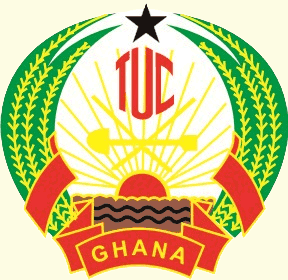
When school goes on recess, it must reasonably follow that students use that time to have some good rest.
The picture is, however, the opposite in contemporary times. It has almost become the norm that parents find ways of making their wards use vacation periods to do something else other than rest. This is not because the younger ones don’t need rest. Yes, they do. Personally, I have maintained that modern-day children are consistently waking up to the daily routines that are typical of adults - waking up too early in order to catch a bus early enough to go to school which may only be about 10 to 14 kilometres away from home; returning late from school; not having breakfast before leaving home, among other things. This shift in what should have been the norm is largely due to almighty traffic in our capital. This is truly an uncalled for situation that the younger generation (children) have to grapple with at an early age. What can these younger ones do when there are just too many people commuting to and fro? This situation makes only the “earliest” bird to catch the worm.
Really, children have had to succumb to the lifestyle of their parents as the labour market becomes even more competitive. To the extent that some parents have to work throughout the year in order to secure their jobs/positions in the workplace, makes matters worse for these young ones. During vacation when parents are still likely to busy with work, most parents, in order to be somehow clear in their minds about what their wards are up to while away from home, put their children in vacation schools. Apart from making sure the devil doesn’t find vocation for idle hands, vacation schools provide an opportunity for these children to learn from other students who attend other schools, experienced teachers from other schools as well as give them the opportunity to cover certain topics that they might have missed in some of their lessons.
Looking at some of the benefits that come with it, vacation school can be a worthy idea and could help parents shed off the anxieties of not being around to monitor what their children do during their absence. Great idea! Nonetheless, it goes without saying that there are financial implications to it. This, then, leaves us with these questions: what will be the fate of children of parents or guardians who, perchance, cannot afford this extra tuition? What could possibly be the way around it for such parents?
Someone needs to answer these questions, don’t they? There is an Akan proverb that goes: “wo nyonko da ne woda” which literally translates to “the bed you make for your neighbour is the same one you lie on”. This pithy saying is essentially to wit the importance of bearing each other’s burden. Sometimes answers can be provided through actions. And the University of Professional Studies, Accra (UPSA) understands this so well. That is why as one of its Community Action Initiatives, it has settled on running free vacation classes for Pre- Senior High School (SHS), SHS and Remedial Students when students of the university are on their second-semester recess. The intention is to provide free classes for students whose parents may not be in a position to pay for extra tuition for their children during vacation and also for SHS students who possibly attend not-so-privileged schools and reside in and around the environs of the university. Yes, that’s the Ivory tower going to the market place. That sure is the gown going to town right there!
I have had the curiosity to keep close tabs on the programme since it began. So, from time-to-time, I have conversations with some of the students (participants) as well as some parents and their reaction to the initiative has been inspiringly positive. Most of the participants tell me they had never stepped foot on any university campus before. One of the things the students are mostly excited about is the rare opportunity given them to experience the university environment and to be taught by university lecturers. Until now, most of them had never given a thought to university education but the opportunity given them has aroused that desire.
At the start of the programme, students were given a one-day orientation where they were given a “heads-up” on university life, making right choices with programmes of study, time management, among others. This was quite new to most of them. In the course of the orientation, the ground rules for the programme were also discussed with participants. Each participant was required to let their parents or guardians sign a parental consent form. By signing, it implied that parents have given their full support for their wards to take part in the free classes. It also means participants, with the consent of their parents, agree to comply with good behavioural standards set for them. The seriousness attached to set standards seems to be working tremendously. Students are remarkably disciplined. Hardly will one see a student litter the campus, loiter or make noise needlessly. The training they have received these few weeks is bearing great fruits already and hopefully will stay with them forever or, at least, for a long time.
This initiative, championed by the Vice-Chancellor of the University of Professional Studies, Accra himself, was intentioned to be unique, providing participants with knowledge in a subject area outside mainstream curriculum. So, as part of the subjects taught, the organisers thought it expedient to include Leadership as one of the subjects of study. This has proven to be a brilliant idea. The students become animated when it’s time for Leadership lessons. It is believed that this particular subject will instil good leadership virtues in participants, some of which are: honesty, courage, creative thinking, moral vision, temperance and magnanimity. It is expected that these participants, starting off as 80 in number and later numbering about 250 by the third week, will ultimately be motivated to provide transformational leadership in whatever form at present or later in life.
Students are also excited about teaching methodologies. They see lessons to be interesting and highly interactive. Lecturers’ use of PowerPoint slides to complement teaching adds a touch of uniqueness to teaching students at that level and makes them enjoy their lessons. This is something new in the classroom situation to most of them. A student, Ama, (Not her real name) tells me “I like the use of PowerPoint by the teachers. It makes the class more interesting. You will hardly see anyone dozing or not paying attention. The slides are interesting with images and all”. A colleague tells me how “disappointed” the students were when she announced in one of her classes that she was not going to use slides to complement teaching, due to some challenges she had with her laptop.
As if planned, the students retorted in unison “ooooooh!” No wonder they are the net-gen (generation) or the indigenes (natives) of the digital world [hahaha!]. I have christened them “e-teens”. Mainly attracted to new media technologies, they have been born into a time of abundance of same (new media technologies). It is said that these teens practically look at more screens than any other generation. Their unique tendency must definitely be a considerable factor when teaching them, I guess.
One cannot fail to acknowledge the fact that faculty and staff involved in this initiative have also gone out of their way to carry this through. Big kudos to these people who are sacrificing their vacation for the UPSA Community Action Initiative. It is a worthy example of foregoing one’s comfort for the greater good.
A friend recently shared a post on her WhatsApp status which went something like this: “Only your parents want you to be better than them”. That is the sad reality and I couldn’t agree more to that post. But then, thinking through it, I wondered why we would just not wish that we all do well. After all, a lot of goodwill only make humanity better. The beneficiaries of this initiative sure have a cause to also make similar sacrifices when they get the chance. By doing so, they will groom other generational leaders who are ready to also make sacrifices for other generations to come. This is because they will represent the fruits of sacrifice and brotherly love. That is what UPSA has done for them and they sure have to “pay it forward”
So, until next time, “pay it forward”! xxx
---
Theodora teaches at the Department of Communication Studies, University of Professional Studies, Accra.
Read Full Story










Facebook
Twitter
Pinterest
Instagram
Google+
YouTube
LinkedIn
RSS